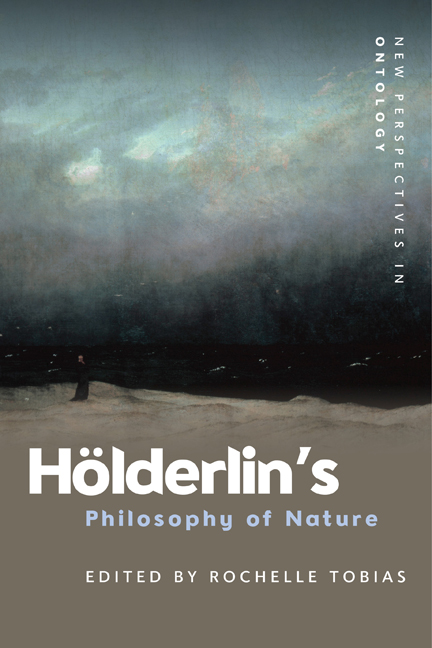6 - Hölderlin's Local Abstraction: The Natural-Historical Sublime in ‘Voice of the People’
Published online by Cambridge University Press: 08 October 2020
Summary
But he felt mainly indifference toward himself, and the same toward the abandoned city. He could not learn to love a place within himself where his last panic-stricken compatriot had been lost centuries before. Nor could he love the river's wild maelstroms and great floods, which swallowed and carried away any person just as they would a helpless object.
In one of his late poems Wallace Stevens imagines a paradoxical entity, clearly identified as such already in the title of the poem: ‘The River of Rivers in Connecticut’. Because the archetypal status of this ‘unnamed flowing’ seems inseparable from its sensible instantiations in a particular place, Stevens calls it a ‘local abstraction’. The entity envisioned in the poem thus hovers between geographical particularity and a universality embracing the brotherhood of streams described by Goethe in ‘Mahomet’s Song’ as rushing towards a common destination. This feat of poetic conjuration may be viewed as Stevens's ironic solution to the difficulty posed by the ‘atopic’ character of the sublime, a difficulty that surfaces with exemplary clarity in Wordsworth's avowed inability to assign a proper name or a definite place to a torrent evoking the transcendent power of the imagination.4 By relinquishing sublimity even as he flirts with it, Stevens succeeds in conjoining ideality with concreteness.
No such renunciation is required for the fusion of ideality and concreteness achieved in the famous line from Hölderlin's hymn ‘The Rhine’: ‘A mystery are those of pure origin [Reinentsprungenes]’ (Poems and Fragments, 433). The fusion is here epitomised by a proper name that has been said to derive from either the Greek verb rein (to flow) or the German adjective rein meaning ‘pure’. Yet the exception afforded by this unique name only highlights the rule. For in Hölderlin's river hymns we typically find a tension between the geographical specificity of the landscape being described and the evocation of a sublime principle that transcends every particularity.
In what follows I approach this topographically elusive topic by examining a poem that Hölderlin completed during the gestation period of the Rhine hymn, and whose very structure and composition history foreground the relation between generic invocation and geographically concrete reference.
- Type
- Chapter
- Information
- Hölderlin's Philosophy of Nature , pp. 94 - 122Publisher: Edinburgh University PressPrint publication year: 2020



